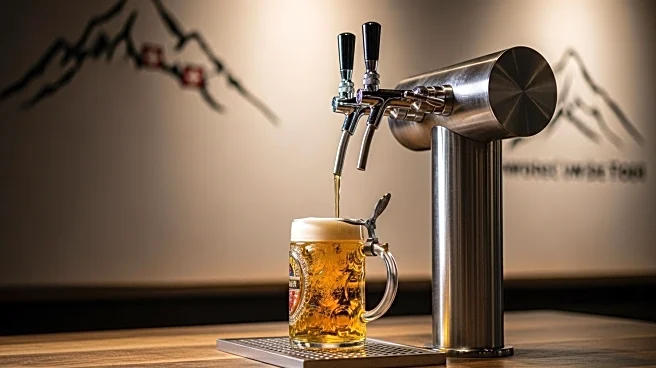What is the story about?
What's Happening?
The Swiss beer industry is navigating the challenge of integrating innovation with long-standing traditions. Historically, industries like beer, wine, and whiskey have been deeply rooted in cultural heritage, with products often seen as cultural artifacts. However, modern entrepreneurs are finding ways to innovate within these traditional frameworks. In Switzerland, the beer industry has seen a surge in innovation post the dissolution of a beer cartel in the 1990s, leading to a vibrant scene with over 1,200 breweries. This growth is attributed to a strategic blend of tradition and modernity, where brewers maintain authenticity by incorporating local cultural symbols and collaborating with traditional industry players.
Why It's Important?
This development highlights the potential for traditional industries to evolve without losing their cultural essence. By balancing innovation with tradition, the Swiss beer industry sets a precedent for other sectors facing similar challenges. This approach not only preserves cultural heritage but also opens new market opportunities, particularly in multicultural regions. The success of Swiss brewers in maintaining authenticity while embracing modern techniques could inspire similar strategies in other traditional industries, potentially leading to economic growth and cultural preservation.
Beyond the Headlines
The Swiss beer industry's approach underscores a broader cultural and economic shift where tradition and innovation are not mutually exclusive. This model could influence global industries, encouraging a respectful reinterpretation of heritage to meet contemporary demands. The Swiss example demonstrates that innovation, when aligned with cultural values, can enhance rather than diminish traditional industries.














